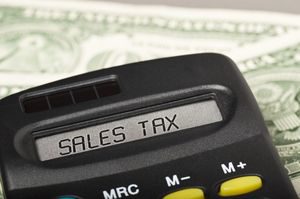The use of the Internet can no longer be taxed, but the debate over taxing what is purchased over the Internet remains heated and unsettled.
The Permanent Internet Tax Freedom Act, signed into law in February, permanently bans any state and local taxes on Internet access. The measure also prohibits taxes on Internet-related digital goods and services, thereby ending nearly 20 debate and moratorium extensions on the matter.
Seven states that had been allowed to temporarily charge an access tax due to a grandfather clause must now phase out those taxes by 2020. The states include Hawaii, New Mexico, North Dakota, Ohio, South Dakota, Texas and Wisconsin.
 Supporters of the new law say it will guarantee Americans will never have to pay taxes on the service that connects them to the Internet. Federal Communications Commissioner Ajit Pai has put it this way, “Americans need and want the certainty that the digital world will be spared the taxman.”
Supporters of the new law say it will guarantee Americans will never have to pay taxes on the service that connects them to the Internet. Federal Communications Commissioner Ajit Pai has put it this way, “Americans need and want the certainty that the digital world will be spared the taxman.”
While Internet connection and operation services can no longer be charged access taxes, most states continue to push for a variety of sales taxes on Internet purchases. Arguments are that the taxes will protect brick-and-mortar businesses from unfair competition. The most recent legislation on this sales taxes issue is called the Marketplace Fairness Act.
The Marketplace Fairness Act would enable states to not only collect sales taxes on Internet purchases but to also impose taxes specifically on remote retailers who have no physical presence in their state. The act requires states to adopt simplified sales tax laws.
As debate has dragged on for years, technology has improved, making it much easier to track online purchases across state lines and then assess and collect sales taxes. Dozens of states are seeking to impose sales taxes on Internet purchases made within their borders. This would subject an online purchase to the same state and local taxes a product or service would have been charged at a local store. Some states are debating proposals that would tax third-party delivery services, targeting major online retailers who use regional shipping centers with massive inventories.
While purchasing tax-free products online provides an immediate cost savings for consumers, supporters of online taxes say the long-term effects of tax-free purchases are painful and deep. They argue that sales taxes generally range between 5 to 10 percent. Local businesses must impose and collect them from customers, so they suffer a 5 to10 percent price disadvantage to Internet retailers who are not required to collect sales taxes. The effects on business range from suffering lower profits to being forced out of business. Internet sales tax proponents say it’s not about supporting taxes in general, but rather about ensuring local job and business growth.
Currently, there is no uniform way to confirm the quantity and scope of tax-free online sales, which makes it difficult to accurately predict sales tax revenues for local and state budget planning. Meanwhile, the ban on Internet access and use taxes will cost states that are currently imposing some type of user fee an estimated $561 million annually. It’s expected that these states will step up their push for sales taxes to make up the difference, but there’s no agreement on the most effective tax rate.
Those who oppose online sales taxes say it’s all about grabbing more tax revenues to facilitate bigger government. They claim taxes charged on out-of-state purchases force those companies to collect taxes without representation. There is also concern that the federal government would enact a law compelling all states to collect a set rate rather than allowing each state to determine its own tax formula.
Some economists add that competition provides the best products at the best prices. They point out that the Internet and sophisticated transportation networks now allow for better consumer choices than ever before and that business is growing. They say sales taxes on those choices would be like an artificial and unnecessary price increase that would affect jobs and economies negatively.
 is now
is now 
